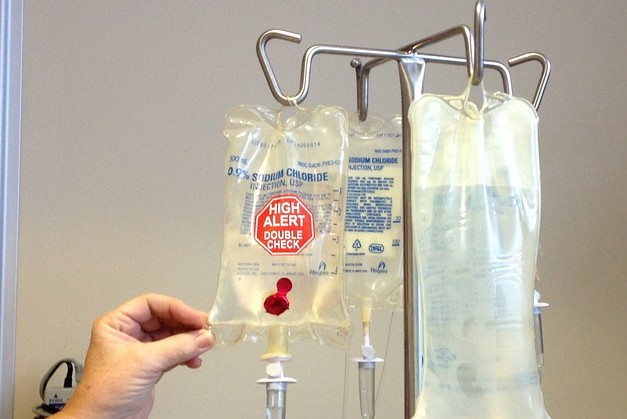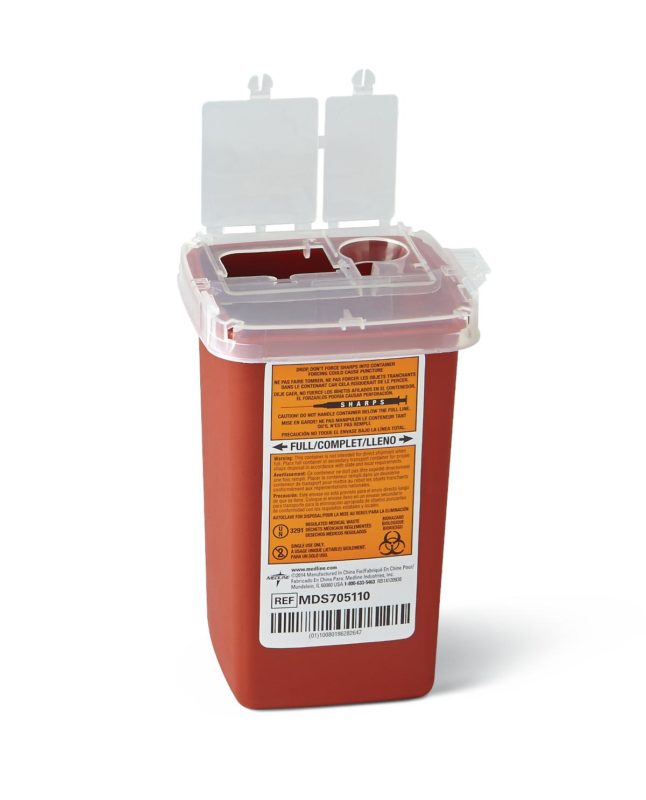Medical Waste Removal Proficiency: Where Service Quality Fulfills Health And Wellness Specifications
Medical Waste Removal Proficiency: Where Service Quality Fulfills Health And Wellness Specifications
Blog Article
Remain Compliant and Safe: Exactly How to Get Rid Of Medical Waste Correctly
In today's ever-changing health care landscape, making sure compliance and safety and security when it pertains to medical waste disposal is of utmost significance. The appropriate monitoring and disposal of medical waste not only protects the environment however also safeguards the health and wellness and health of medical care employees and the basic public (medical waste disposal services with WasteX). However, navigating the complex policies and guidelines surrounding clinical garbage disposal can be a challenging job. In this conversation, we will explore the numerous sorts of medical waste, the associated risks, the legal demands, and the most effective practices for keeping a compliant and safe medical waste administration system. Stay tuned to find the eco-friendly solutions that are reinventing the way medical waste is dealt with, as we lost light on this essential element of health care procedures.
Significance of Correct Clinical Waste Disposal
Appropriate clinical garbage disposal is of utmost relevance in making certain the safety and security and wellness of both healthcare employees and the public. Medical waste, that includes things such as used needles, polluted dressings, and expired medicines, postures major health risks otherwise managed and gotten rid of appropriately.

Additionally, incorrect disposal of clinical waste can cause environmental contamination. When clinical waste is not segregated, treated, or disposed of correctly, it can discover its means into garbage dumps or bodies of water, possibly polluting the soil, water, or air sources. This can have damaging impacts on ecosystems and human health and wellness, as hazardous substances might leach into the atmosphere or be released into the environment.
Sorts Of Medical Waste and Their Threats
The diverse series of medical waste produced by health care centers provides numerous risks that need to be very carefully addressed to make sure correct disposal and stop possible damage to public wellness and the setting. Medical waste can be classified into various groups based on its attributes and level of danger.
One type of medical waste is transmittable waste, that includes items that are contaminated with blood or other potentially transmittable products. This can include used needles, syringes, and other sharp objects, along with tissues, swabs, and dressings from individuals with transmittable diseases. Improper disposal of contagious waste can cause the transmission of harmful pathogens and the spread of infections.
An additional classification is contaminated materials, that includes products that are poisonous, combustible, harsh, or reactive. This can consist of chemicals, drugs, and particular clinical tools. Mishandling or incorrect disposal of unsafe waste can cause ecological contamination and posture threats to the wellness of waste employees and the public.
Radioactive waste is one more sort of clinical waste that should be meticulously handled. This waste includes materials that have radioactive compounds, such as utilized radiation treatment resources or infected research laboratory materials. Improper handling or disposal of contaminated waste can lead to radiation direct exposure and major wellness threats.
Last but not least, non-hazardous basic waste, such as paper, packaging products, and food waste, is additionally created by medical care centers. While this waste might not present significant risks, it still needs to be correctly managed to maintain tidiness and avoid the tourist attraction of parasites.
To ensure the safe disposal of clinical waste, health care facilities must apply proper partition, transport, therapy, and storage approaches. This includes utilizing ideal containers, labeling, and training for personnel, in addition to adhering to local policies and standards. By addressing the risks related to various kinds of medical waste, health care centers can protect public health and the atmosphere.
Governing and lawful Requirements for Disposal
In order to ensure the correct and risk-free disposal of medical waste, healthcare facilities must adhere to lawful and governing needs. These needs remain in area to protect public health and the environment from the prospective threats associated with clinical waste. Medical waste is categorized as a special category of waste as a result of its potential to transfer infectious conditions and have damaging substances.

Some common requirements include the partition and proper product packaging of clinical waste, the usage of approved tags and containers, and the application of safe handling and transport procedures - medical waste removal. Medical care facilities may additionally be needed to maintain documents of their waste administration techniques and offer documents to governing authorities upon demand
Failure to abide by these legal and regulative demands can result in charges, fines, and reputational damage for health care centers. It is, as a result, vital for doctor to prioritize conformity and develop robust waste management protocols to make certain the safe and proper disposal of clinical waste.
Finest Practices for Safe Medical Waste Administration
Medical care centers must abide by industry best techniques to guarantee the risk-free and efficient management of clinical waste - medical waste disposal services with WasteX. Applying these ideal techniques not only aids shield the atmosphere and public wellness but likewise decreases the risk of possible lawful and financial consequences
Among medical waste disposal services with WasteX the key best methods is the proper partition and control of different sorts of medical waste. This entails making use of color-coded containers and clearly classifying them to guarantee that each sort of waste is taken care of correctly. Additionally, medical care centers need to have designated areas for storage and disposal of clinical waste, with clear guidelines and treatments in area.
One more essential facet of safe medical waste administration is the training and education and learning of healthcare staff. All workers who deal with clinical waste should get extensive training on the proper handling, storage space, and disposal treatments. It is crucial to make sure that staff participants recognize the prospective threats related to medical waste and are geared up with the necessary expertise and skills to manage it securely.
Normal tracking and navigate to this site bookkeeping of waste monitoring practices is likewise essential. This entails consistently reviewing waste management treatments, conducting assessments, and maintaining exact documents. By keeping an eye on waste administration methods, healthcare facilities can determine any type of possible issues or areas for improvement and take corrective actions as necessary.
Lastly, medical care centers must focus on using ecologically friendly disposal techniques whenever feasible. This consists of using waste treatment innovations such as autoclaving or incineration, which can assist minimize the quantity and unsafe nature of medical waste.
Eco-Friendly Solutions for Medical Waste Disposal
Executing environment-friendly remedies for clinical garbage disposal is important for medical care facilities to minimize environmental impact and guarantee lasting practices. Typical approaches of medical garbage disposal, such as incineration and landfilling, have been found to release damaging toxins into the air and contaminate dirt and water sources. Because of this, there is a growing demand for alternate methods that are both secure and eco-friendly.
These systems make use of sophisticated technologies to safely refine clinical waste within the health care facility itself. By treating the waste on-site, transport exhausts and threats associated with off-site disposal are reduced.
Another eco-friendly method is the fostering of recycling programs for sure kinds of medical waste. Materials such as glass, plastics, and metals can be recycled instead of disposed of in garbage dumps. By implementing segregation and recycling programs, healthcare centers can considerably lower their waste volume and reduce their environmental impact.
In addition, health care centers can discover making use of recyclable medical tools and supplies. By choosing recyclable things, instead of single-use choices, the quantity of waste generated is considerably minimized. Recyclable products can be disinfected and used multiple times, causing cost savings and much less ecological influence.
Final Thought
In conclusion, correct disposal of clinical waste is vital for keeping compliance and ensuring safety. Understanding the kinds of medical waste and their associated threats is essential in order to execute the appropriate disposal methods. Complying check my site with legal and regulatory needs is necessary for preventing charges and shielding the atmosphere. Complying with best methods for risk-free clinical waste monitoring and checking out eco-friendly solutions can add to a sustainable and liable technique to throw away disposal in the health care market.
In this discussion, we will discover the different types of clinical waste, the involved threats, the legal requirements, and the best practices for preserving a secure and compliant medical waste monitoring system - medical waste removal.One type of clinical waste is contagious waste, which includes items that are polluted with blood or other potentially infectious materials.Contaminated waste is an additional type of clinical waste that need to be very carefully managed. Medical waste is identified as a special category of waste due to its possible to send infectious conditions and consist of hazardous materials
Complying with finest techniques for risk-free medical waste administration and discovering green options can contribute to a accountable and sustainable strategy to waste disposal in the healthcare market. medical waste disposal services with WasteX.
Report this page